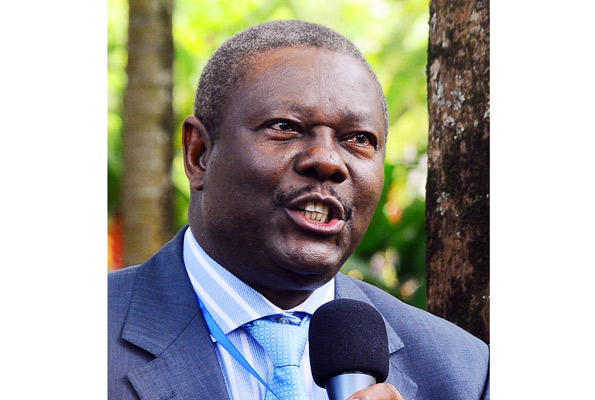Ugandan government has finally signed Production Sharing Agreements with UK based Tullow Oil on Friday 4thFebruary 2012. The deal has been in waiting for months ( we called it here) as a bargain was struck on the one hand between the government and the oil companies and on the other between government officials and the Ugandan public.
On hold since March last year, when the initial negotiations begun, the government and the companies particularly Tullow and its sister Heritage Oil and Gas [HOIL] had an acrimonious relationship, the result of a still on-going tax dispute. At that time public scrutiny was also minimal. As the parties put ink to paper on Friday however it was to move their relationship in a new direction and attempt to overcome the hiatus caused by the tax dispute and do so in full public view. Since allegations of corruption in the oil sector late last year- public interest on the back of Parliamentary activism on the oil sector has soured.
In fact Parliament tasked the government not to sign any new deals in the oil sector. For over two months as the parties overcame specific issues- the government led by President Yoweri Museveni went on a charm offensive with particularly ruling party Mps to win them over with assurances and direct participation. At party conferences and as well as in group and private meetings, Mps have had the most direct involvement in this sector ever in its short history. The signature on Friday is the sum total, for now, of the retail politics the President engaged in, as well as the political gamble that it will hold as the deal is debated in the public and within parliament. Observers of Uganda’s oil scene may return to these past three months as the stage set for how this contentious sector will unfold.
Specific details of the signing are here.Press Release – Ministry of Energy PSA signing
Tullow released a very short statement on the matter as it turns its focus to farming down the assets it has acquired to France’s Total and China’s CNOOC. The brevity of the statement reflects the major concessions that the company had to make to take the deal forward. For example, the new terms highlighted in the statement above show the company is paying higher initial fees and bonuses and agreeing to government taxes including income tax ( at 30%). This is understandable since Uganda has proven reserves and prospects are good raising the bargain against previous PSA’s that were concluded when exploration had yet to establish oil in the country.
However the signing is coming as Tullow has a case against its former partner Heritage arising of its settlement of Heritage’s tax obligations to the Ugandan government. It is reasonable to conclude that in agreeing to the “generous” terms in the present deal Tullow accepts that potentially costly liability may be built into the new arrangement. As a consequence of Heritage’s intransigence over the tax issue Tullow made what has been described as a political payment to the government of Uganda of hundreds of millions which may now have to be written off depending on the outcome of the cases.
Many experts I have spoken to including government advisors say the cases are bad and predict a loss for both government (which is pursuing Heritage in a separate case) and Tullow. The new PSA’s and the concessions disclosed so far suggest a decision by Tullow and the government to transcend the tax issue regardless. Eventually trained eyes may have to evaluate how the small print insures them both from the Capital Gains Tax ( CGT) nightmare with HOIL.
This brings one to the question of the “stabilization clauses” that have been a major part of the debate on what occasioned the delays in the first place.These clauses ought to address the problem above. The exact wording of the stabilization clauses has not been released. Last year the general wisdom was that stabilization or protection clauses would not apply to certain areas like the environment and human rights. However the restitution regime for commercial losses arising from changes in legislation was believed (according to my own sources) to be carefully worded to provide the most flexibility.
Here is a snapshot from a late draft. Draft on Stabilization
If so this is a major triumph for the Ugandan government and may well be a pacesetter for other oil agreements in the region and elsewhere in Africa. According to Kabagambe Kaliisa ( pictured above), the Permanent Secretary at the Ministry of Energy, Tullow had agreed to a revision of the “standard stabilization” clause.
A more accurate analysis is possible when and if the PSA’s are made public. It should also show if the arrangements in this deal indemnify the parties of any future losses from the CGT episode. Personally I think whatever the outcome- the issue is worth moving past.
This raises the next series of issues.
A parliamentary resolution done prior to the signing of the deal required that the PSA’s be made public.Resolution of Parliament on the Oil Sector-Oct_112011. It remains to be seen how government will respond to this. It’s likely to argue amongst others that the issue is being contested in litigation amongst others by me and others.
A closer look however reveals a series of important tradeoffs that say it is not business as usual for the Ugandan government which two years ago dismissed scrutiny in the oil sector on grounds of national security and confidentiality.
Here is why.
Firstly, when Parliament debated the oil question late last year, the government did put brakes on the present deal in order to confront the changing political environment. The charm offensive referred to above was the consequence. As a long term investment oil companies rely very much on political security and this issue was forced with allegations of bribery and lack of transparency, which embroiled Tullow during the debate last year.
As a political tradeoff the ruling party involved its own Mps directly through consultation led by President Yoweri Museveni himself. The result is that the decision to sign was endorsed after party Mps had their say on the matter. Secondly, the issue of stabilization was very popular with NRM Mps. While the government position on revising the clauses came before the oil debate- the idea that the President was personally committed to better terms has improved his personal position with ruling party Mps even as senior ministers in his cabinet were accused of taking bribes from the oil companies. Perhaps lastly but not least, next week the government is set to introduce two new bills and the President has indicated that a Parliamentary probe into the oil sector could proceed. Unofficial copies of these bills are already in circulation and show an improvement from the last 2010 draft. New legislation is an important tradeoff for lawmakers but also is a free hand for Parliament to proceed with its own inquiry.
While the current PSA’s are signed based on old law, the prospect of a better regulated sector will go down well as an argument for political commitment to better management of the oil sector. I would add too that bearing detailed examination of these PSA’s, it is likely ( I add the usual caveats here) that the government and the companies were aware of the pressure for best practice from amongst others future legislation. While re-negotiation of PSA’s has not been supported by government officials- bad deals tend to cancel that quickly as political circumstances change.
That said dissenting voices will contest this deal and it is likely to be rejected by the official opposition on the basis that it was signed before new legislation was in place and while details of the deal have been volunteered- the lack of full disclosure will remain a sore issue for the government.
On a final note, I suspect that Uganda’s petroleum program timelines are being influenced to a degree by regional events. They include the agreement for Kenya to build a pipeline for South Sudanese oil and its own continuingsearch for petroleum reserves. While the present agreement commits Tullow and its partners to a Uganda based refinery- this may well be moot if oil infrastructure across the border advances much faster. Tullow has increased its presence in Kenya.
More analysis in the coming days.










